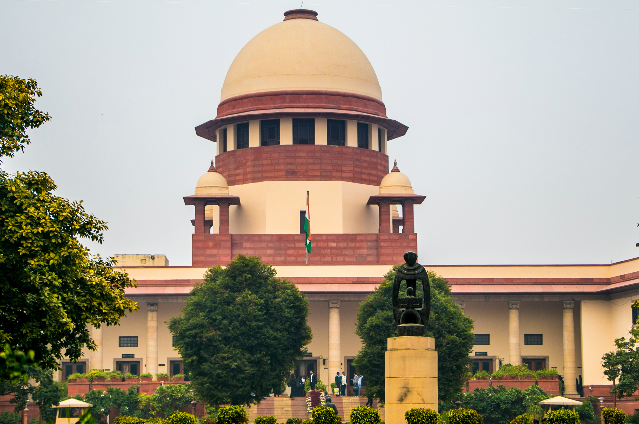The Supreme Court of India has called dowry harassment a 'subversive' crime where women are subjected to cruelty by 'covetous' husbands and in-laws. Also, the Court indicated in a judgement that a straitjacket and literal interpretation of Section 304-B, a penal provision on dowry death may have blunted the battle against the 'long-standing social evil.'
About Section 304-B of the Indian Penal Code:
According to Section 304-B, to make out a case of dowry death, a woman should have died of burns or other bodily injuries or 'otherwise than under normal circumstances' within seven years of her marriage. She should have suffered cruelty or harrasment from her husband or in-laws 'soon before her death' in connection with demand for dowry.
Issues with Section 304-B:
- The courts have mostly resorted to the narrow version of Section- 304B. Likewise,
a) Courts had interpreted the phrase 'soon before' in Section, 304-B as 'immediately before'.
b) The phrase 'otherwise than under normal circumstances in the Section also calls for a liberal interpretation. - Dowry deaths account for almost 40% to 50% as per the records of the last two decades. In 2020 alone, around 7000 dowry death cases were recorded. Uttar Pradesh is recorded to have the greatest number of dowry cases. The causes of dowry and related atrocities have been the same always, such as greed, illiteracy, and lack of willingness.
Need of the hour:
- Courts should instead interpret Section 304-B liberally while keeping in mind the law's intention to punish dowry and bride-burning.
- Absurd interpretations should be avoided. The courts should establish a 'proximate link' between the harassment and her death.
- The court must also put incriminating circumstances before the accused and seek his response. She should be given sufficient opportunity to give his side of the story.
- Paying and accepting dowry is a centuries-old South Asian tradition where the bride's parents gift cash, clothes, and jewellery to the groom's family. But this very tradition has been capriced with the greed of the groom's family. They are literally ready to squeeze the girl's family and more. The dowry demands are imposed unconditionally that too with hefty figures of cash exchange. Still, to prevent dowry deaths and harassment of brides in their matrimonial homes, India introduced a tough anti-dowry law-Section 498 of the IPC in 1983.
- Educating the girl child, proper implementation of govt initiatives and laws, and initiating mass media campaigns can help to subside the growth of evil practice thereby successfully abolishing it in the society.
We the people that form a society together shall stop giving our daughters to beggars. We must raise our voices together against dowry.
'The 'dowry' is the bride's payment for the groom's disability.'
. . .
References:

